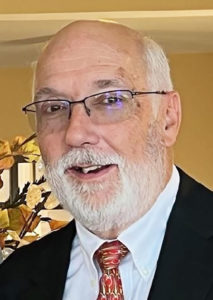Focal Passage: Genesis 12:1-5a; 13:11-18
 As a minister, one of my most enjoyable moments is standing before a couple who make promises to each other as they become husband and wife. When these couples come to see me before they get married, I talk about promises each will make to the other on their marriage day.
As a minister, one of my most enjoyable moments is standing before a couple who make promises to each other as they become husband and wife. When these couples come to see me before they get married, I talk about promises each will make to the other on their marriage day.
I ask them to thoughtfully write what they promise to do for the other as each takes on the new role of husband or wife. “I promise to …” forces the one speaking to take responsibility for their future actions. The one hearing these promises then must decide whether to trust the one giving them enough to believe that these promises will be fulfilled.
The unifying theme of “promise and fulfillment” found throughout all of Scripture began with the covenant made with Abram, soon to be Abraham. God provided a list of promises that He claimed He would deliver. Land, nation, blessings, greatness and being a blessing were all promises thoughtfully made to Abram by God.
God said, “I promise …” Abram was then confronted with this life-changing decision; did he trust God enough to believe that what He said was true and that the promises would become reality?
Much like the tower of Babel’s story, when God had to choose whether to show mercy to His people even after the Flood, even as they continued to disobey Him, Abram was now confronted with whether he could believe these promises to be true. In weighing his decision, Abram confronted obstacles, namely, whether he would choose an unknown future in an unknown place or stay in a known place with a predictable future.
Being 75 years of age and his wife Sarai beyond childbearing years further enhanced the challenge of his decision. What would Abram do?
The command of God to “go” (Genesis 12: 1) was met with Abram’s decision as “he went” (v. 4). Abram’s decision was immediate and without reservation. He went as commanded. Abram did not seek counsel, perhaps as a groom would with a prospective father-in-law. “I love your daughter and want to make a future, but I don’t have all the answers about how things will work out. Yet, here I am.”
The covenant God made with Abram was tenuous at best. Could God trust Abram to be obedient? History said no. Could Abram trust God so that these promises would be fulfilled? History said yes. God had now chosen to deal with one man, one family, and one nation. This covenant, made in the shadow of the tower of Babel, becomes the foundation for the rest of history.
This covenant has not changed. Now made in the shadow of the cross of Jesus, the covenant is still offered — not to a group — but to individuals. God offers His covenant, trusting that we will be obedient to Him. It is made with promises that continue to be proven true.
Like Abram, individuals are confronted with the option, “Do I trust these promises enough that I will move from our culturally-driven life to an obedient spirit-filled life?” The command to go is constant and unchanging. Abram trusted God enough to move, act and believe. The offer has not changed through the centuries. Do you trust God enough to change and “go?” B&R

